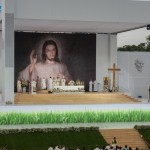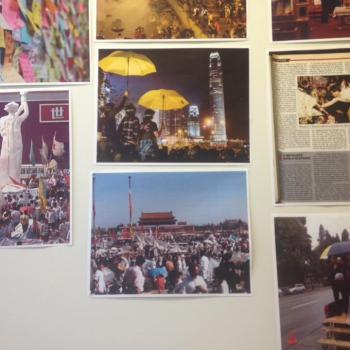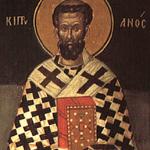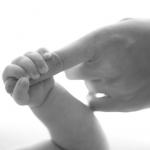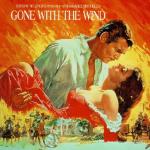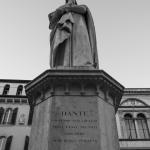![Bishop John Tong Hon - by Rock Li (John_Tong_Hon.jpg) [CC BY-SA 3.0 (https://creativecommons.org/licenses/by-sa/3.0/deed.en)], via WIkimedia Commons](https://wp-media.patheos.com/blogs/sites/721/2016/08/John_Tong_Hon-688x1024.jpg)
I am still reading the document, so it will be a bit before my thoughts will have been fully processed. But take this as a bit of a placeholder, as it seems to signal a very significant disagreement on the Catholic Church in China from among the ranks of the Hong Kong Catholic Diocese. While St John Paul II once called the church in Taiwan a ‘bridge church’ to China in 1984, John Baptist Cardinal Wu took the Bishop of Rome’s blanket application to all Chinese Catholics living outside of the mainland to be a ‘bridge church,’ as did one of the major analysts of Sino-Vatican relations, political scientist Sister Beatrice Leung. Wu’s thoughts on the matter were even more explicitly spelled out in his widely-cited pastoral letter in 1989 anticipating the 1997 handover, ‘March Into the Bright Decade.’
There is much more to say about Hong Kong’s role as a ‘bridge church’ in light of its own return to Chinese sovereignty from British colonialism in a political framework that the People’s Republic of China’s then-Paramount Leader Deng Xiaoping called ‘one country, two systems,’ as spelled out in the 1984 Sino-British Joint Declaration and in Hong Kong’s mini-constitution, the Basic Law. Certainly, it has affected the way that Catholic theology is done in Hong Kong – and I happen to think that Hong Kong has been an exciting crucible for the doing of Catholic theology because of its very unique reception of the Second Vatican Council at the 1970 Diocesan Convention convened by Bishop Francis Hsu. Moreover, Cardinal Tong has explicitly used the language of the ‘bridge church’ since the start of his episcopate.
By tomorrow or so, I hope to say something about Tong’s article and what prognostications may lie within this text about the future of the Catholic Church in China. In the meantime, I’ve indexed some previous posts here that I’ve written about Hong Kong and China, most of which have some reference to Christianity and some of which have explicit references to Catholicism:
- ‘Lord, what can I do for this city?’ (on evangelical liberation theology in Hong Kong)
- ‘What’s So Good About Being Anglican?’ (Part 2) (with some reflections on the colonial heritage of Hong Kong Anglicanism)
- ‘Orientalization is an objective offence: answering our objectors‘ (on a spat with Rick Warren on a Red Guard photo he posted on Facebook, with reference to Saddleback Hong Kong)
- ‘Edward Snowden’s Right of Abode’ (what the Snowden landing in Hong Kong means about Hong Kong)
- ‘The Canonization of Vatican II on Divine Mercy Sunday’ (hinting at my being influenced by Hong Kong Catholicism)
- ‘Chinglican Christianity: The Civil Society Question’ (Catholic social teaching and deliberative democracy protests in Hong Kong)
- ‘Pay Attention, People. Taiwan Matters. Hong Kong Matters’ (on Sunflower Movement, before the Umbrella Movement even was a thing)
- ‘We Are Pissed Off Too!’ (on participating during field work in Hong Kong in a democracy protest)
- ‘Should Asian Americans/Canadians Care About Hong Kong? Part 1: The Preschool Answer’ (primer on Hong Kong for non-Hongkongers)
- ‘Should Asian Americans/Canadians Care About Hong Kong? Part 2: The Asian American/Canadian Answer’ (primer on Hong Kong for Asian Americans/Canadians)
- ‘Should Asian Americans/Canadians Care About Hong Kong? Part 3: What’s Political Agency For?’ (primer on the nebulous concept of democracy in Hong Kong)
- ‘Should Asian Americans/Canadians Care About Hong Kong? Part 4: The UK Question’ (primer on Hong Kong-UK relations – way before the independence movement started thinking along these lines recently!)
- ‘Chinglicans in Communion: in defence of Occupy Central with Love and Peace’ (on Hong Kong Anglicanism)
- ‘Yes to Tiananamen occupations, but no, not what you think’ (on Taiwan’s Sunflower Movement in 2014)
- EXAM REVIEW: Hong Kong’s Occupy Central with Love and Peace’ (BIG PRIMER PRE-UMBRELLA MOVEMENT)
- ‘Benny Tai as a political theology, or what Elizabeth Stoker Bruenig might have to say about Occupy Central’ (examining theology in deliberative democracy via the Catholic left)
- ‘Cascadian Privates and Occupy Central’ (a piece comparing the Pacific Northwest and Hong Kong, literally written the day that the Umbrella Movement officially started)
- ‘The World Is Watching’ (a piece on the Umbrella Movement on the day it started)
- ‘It Has Always Been the Students – and the Clergy – and Catholic Social Teaching #HongKongProtests’ (explicitly linking Catholic social teaching to the Umbrella Movement)
- ‘If You Are Not Informed About Vancouver solidarity, don’t comment’ (on Vancouver solidarity with the Umbrella Movement)
- ‘I Really Thought I Didn’t Do China Studies Until 2014’ (on what the Sunflower and Umbrella Movements did for me in rethinking my academic projects)
- ‘A Specific Geography of Faith’ (on how my thinking on Catholicism as a geographer synced with the Year of Mercy)
- ‘Only Useful Idiots Would Say that Cardinal Zen is calling for schism’ (the most recent and relevant post, originally posted on Artur Rosman’s Cosmos the in Lost)
I also gave a series of three interviews to Artur Rosman on Ethika Politka on Chinese Catholicism in light of the Umbrella Movement based on a talk I gave on Hong Kong Catholicism in light of the Umbrella Movement at the University of Washington’s Catholic Newman Center. Be sure also to check out the new edited volume that I took the lead in editing, especially as it has an interesting piece in there about Hong Kong Catholic involvement in the Umbrella Movement democracy protests by Mary Yuen at the Diocese’s Justice and Peace Commission. Finally, there is a lengthier article that I have on Christianity and the democracy movement in Hong Kong.
Now for me – back to reading!

